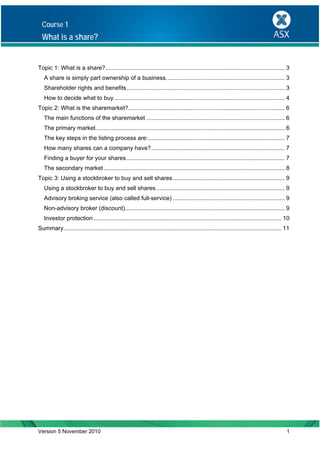A share represents partial ownership in a company. When a company issues new shares and sells them to investors to raise capital, this occurs in the primary market. Investors can then buy and sell existing shares in the secondary market. The document discusses what a share is, shareholder rights and benefits, factors to consider when choosing shares to buy, and the functions of the primary and secondary markets.










